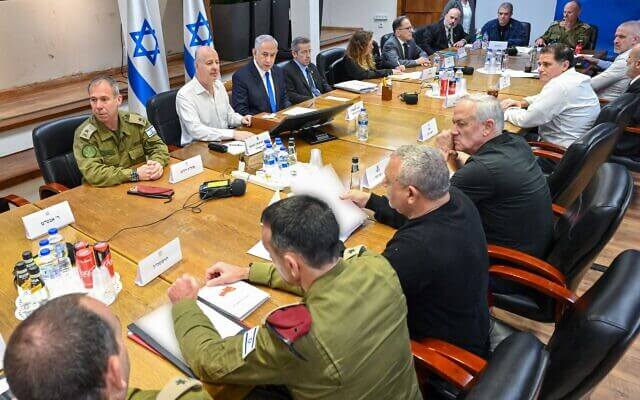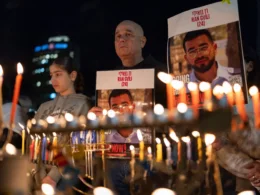Israel’s war cabinet is divided on how to respond to Saturday’s massive aerial attack conducted by the Iran regime, according to a report by Reuters.
The dispute comes as the five-member committee met for three hours on Sunday, where they reportedly agreed to respond to the action but differed on the timing and scale of such a measure.
Despite the lack of a consensus to immediately retaliate for the largely defeated drone and missile barrage, an unnamed official confirmed to the Israel Hayom newspaper that “there will be a response.”
The reluctance to act may be a result of recent tensions between the White House and Prime Minister Benjamin Netanyahu over the current conflict in Gaza. The Biden administration has been calling for de-escalation in the region, largely because of pressure from Congressional Democrats and leftist organizations in the U.S.
In a phone call after the offensive, President Biden was said to have told Prime Minister Benjamin Netanyahu to “think carefully and strategically” about any proposed actions and warned him that the U.S. would not be providing any assistance for a counterattack.
Tehran launched over 300 ballistic missiles, cruise missiles, and attack drones towards various targets in Israel, causing only minor damage to the country’s infrastructure. Reports have indicated that as many as 99 percent of the projectiles were neutralized by the IDF and their American, British, French, and Jordanian allies.
The bombardment was in response to the April 1 airstrike, suspected to have been done by Israel, next to the Islamic Republic’s embassy in Damascus. The event killed several high-ranking Islamic Revolutionary Guard Corps and Islamic Jihad members, including the IRGC’s Syrian chief.
The incident was the first time that Tehran has ever ordered a direct attack on Israel; for decades, it has been funding regional militias to facilitate proxy warfare against the Jewish state.
There was only one reported casualty, an Arab-Israeli girl, who was seriously wounded from falling shrapnel caused by an air-intercept mission. The seven-year-old is currently being treated at a Beersheba hospital.









